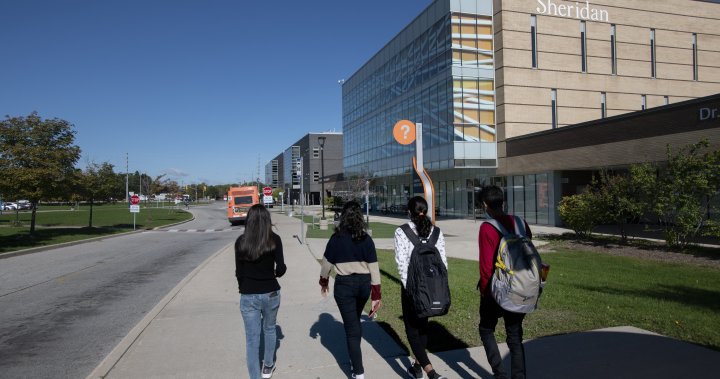The federal government is roughly doubling the amount of money international students need to prove they have in order to get a study permit, says Immigration Minister Marc Miller.
He is also threatening that if provinces and post-secondary institutions fail to act, he will look at “significantly limiting visas” before next fall.
He also said that the 20-hours a week work limit on international students, which was temporarily lifted last year will be extended until April 30, 2024.
“Ahead of September 2024, we are prepared to take necessary measures, including significantly limiting visas, to ensure that designated learning institutions provide adequate and sufficient student supports,” he said on Thursday.
“It is imperative that we work together with provincial and territorial governments, learning institutions and other education stakeholders so we can ensure international students are set up for success in Canada,” Miller told reporters in Ottawa.
He added, “Enough is enough. If provinces and territories cannot do this, we will do it for them and they will not like the bluntness of the instruments that we use.”
Miller’s comments show a marked shift in tone on the matter, even as he noted, “It would be a mistake to blame international students for the housing crisis. But it also be a mistake to invite them to come to Canada with no support, including how to put a roof over their heads. That’s why we expect learning institutions to only accept numbers of students that they’re able to provide for, able to house or assist in finding off campus housing.”

Currently, an applicant to Canada needs to show at least $10,000 in their bank account to prove that they can keep up with the cost-of-living in Canada.
In 2024, this amount will be raised to $20,635. This amount would be on top of the tuition that international students pay.
International students already in Canada, as well as applicants who have already submitted an application for a study permit as of Dec. 7, 2023, will be able to work off campus more than 20 hours per week until April 2024.
“We are also exploring options to ensure that students find adequate housing. These long-overdue changes will protect international students from financially vulnerable situations and exploitation,” he said.
According to a survey by the Daily Bread food bank released in September, Immigration, Refugees and Citizenship Canada’s estimated living expense used during the application process is nearly half of what a student in Toronto typically spends.
When applying for a study permit, a prospective international student must show “proof of financial support.” This means they must be able to show they can support themselves in Canada. If an applicant intends to bring a family member with them, they must also show an additional $4,000, or $333 per month. For every additional family member, they must show $3,000, or $255 per month.
Sarom Rho, the national coordinator of Migrant Students United, described Ottawa’s immigration policy as a “roller coaster”.
“The 20 hour work permit rule was removed after migrant student workers spoke up but just for 4 months. We don’t need monthly improvisations and chaotic twists that let exploitation and abuse continue; we will continue to speak up for stable, fair rules and permanent residency for all,” she said.
Rho added, “At the same time, the feds just doubled the financial requirements for study permits, effectively creating a cap and excluding prospective working class students worldwide who will now be scrambling in the next three weeks to find an extra $10,000 dollars.”




